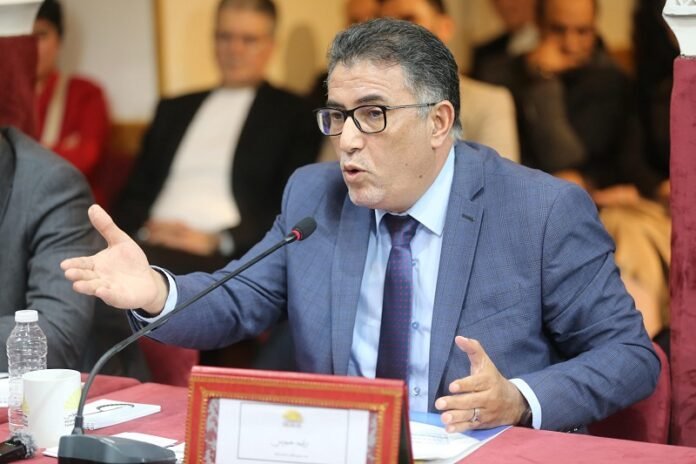Despite the outcries of opposition MPs exposing the greed of some officials and shedding light on the chaos and corruption that plagues the state institutions, the most puzzling truth is that there is no wise man in this country to stop this madness. With each new scandal, officials rush to justify their positions or avoid accountability, while the average citizen pays the price, both financially and in terms of dignity. In the midst of this chaos, everyone wonders: How much longer will the Moroccan people have to wait for real change in a context where true political will is lacking? And is there a savior to put an end to this descent into ruin?
In a controversial statement, Rachid Hamouni, Member of Parliament and head of the Party of Progress and Socialism (opposition) parliamentary group, accused the government of “stealing more than 43 billion dirhams of Moroccans’ money”, referring to the sheep subsidy and customs exemption files. These statements, which shook the political scene, raise embarrassing questions: Where did this money go? Did citizens really benefit? And why are fact-finding investigations being blocked?
The Shocking Allegations: From “Sheep Subsidy” to “Customs Exemptions”
Hamouni revealed documents supporting his accusations, explaining that:
Sheep Subsidy Program (2023–2024):
-
437 million dirhams were disbursed as direct support to purchase sheep (500 dirhams per head).
-
However, market prices did not decrease, but remained high (2,000–4,000 dirhams per head), suggesting that the subsidy did not reach citizens, but rather benefited intermediaries and brokers.
-
He asked: “Where did these millions go? And who benefited from them?”
Customs exemptions on imported meat:
-
According to Hamouni, the state lost 13 billion dirhams due to customs exemptions on imported meat, under the pretext of “combating high prices”.
-
Yet prices remained high, suggesting importers monopolized the profits instead of passing the savings on to citizens.
Political Context: Why Are Fact-Finding Investigations Being Suppressed?
Hamouni confirmed that the parliamentary majority (led by the governing coalition parties) refuses to form fact-finding committees, even though the constitution (Article 67) grants Parliament this right. Serious questions are raised:
-
Is the majority afraid of exposing financial corruption?
-
Why are requests for documents on spending being denied?
-
Is there collusion between some political and economic elites?
Economic and Social Dimensions: Citizens Pay the Price
High prices vs. government support:
-
Despite the billions spent, the price of red meat per kilogram still exceeds 150 dirhams, increasing the burden on families.
-
The striking paradox: the state spends from the public treasury, but the benefit goes to a “network of monopolists” (according to Hamouni).
Failed public policies:
-
This crisis highlights the lack of oversight on subsidy programs, as previously seen in the case of subsidized “bon” flour, which ended up in informal markets.
Political Fallout: A Test for the Credibility of the System
Opposition in the spotlight:
-
The Party of Progress and Socialism, a left-wing party, is trying to leverage the issue for political gain, especially after its losses in the last elections.
-
But the real question is: Can it prove its claims with conclusive evidence?
Government response:
-
So far, no government official has issued a detailed response to Hamouni’s accusations, further fueling suspicions of a “culture of concealment”.
Role of the monarchy:
-
In a previous speech, King Mohammed VI called for protecting public funds and combating rent-seeking, placing the government in a critical position if the allegations prove true.
Conclusion: Will the Truth Be Revealed or Will the Scandal Be Buried?
This is not just a “political controversy,” but a case that affects the fate of billions of dirhams that were supposedly allocated to ease the cost of living crisis. The key challenges are:
-
Government transparency in revealing where the money went.
-
Parliament’s courage in fulfilling its oversight role.
-
Public pressure to hold those responsible accountable.
The bigger question: Will these accusations lead to a judicial investigation, or will the files be closed as in past scandals?
The answer could determine the future trust of Moroccans in their institutions.


